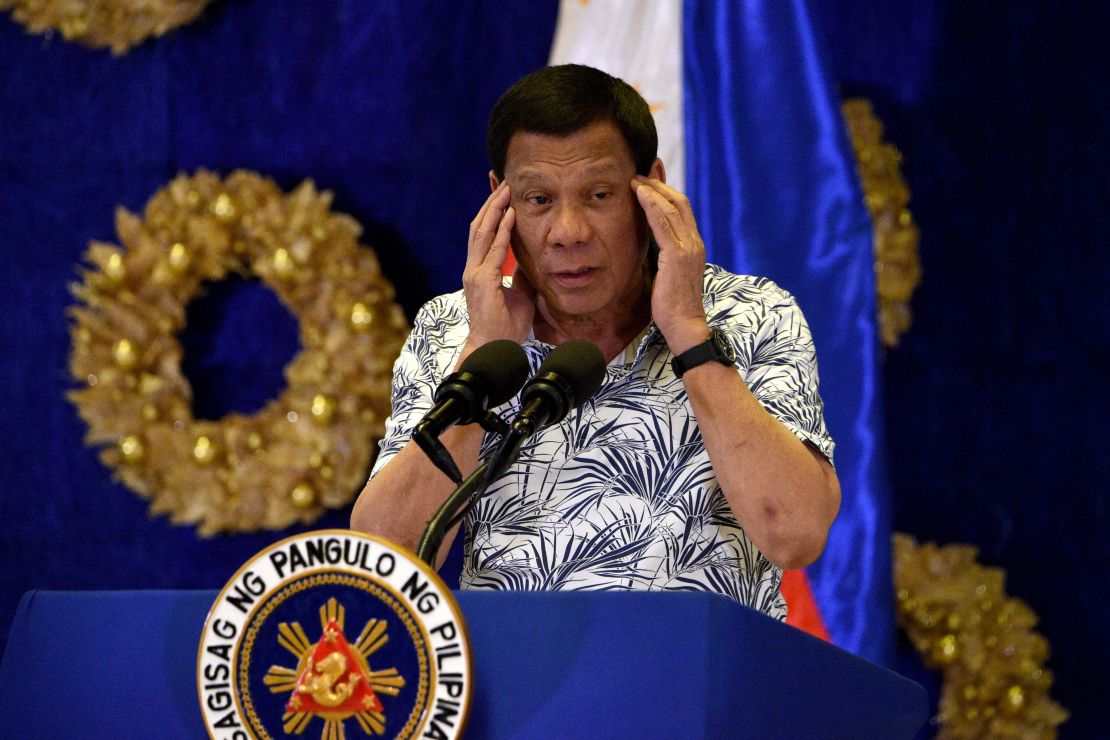The Philippines may be thousands of miles away from the Baghdad airport where top Iranian commander Qasem Soleimani was killed in a drone strike, but a major conflict between the United States and Iran could have direct knock-on effects for the Asian nation.
That’s because hundreds of thousands of Filipinos work abroad in the Middle East and send billions of dollars home annually in the form of remittances.
The brewing hostilities following President Donald Trump’s decision to order a drone strike that killed Soleimani have prompted Philippine President Rodrigo Duterte to ask the country’s Congress to prepare to evacuate thousands of Filipinos working in Iraq and Iran.
Duterte said he is considering calling a special session of Congress to address the issue of how to help Filipino citizens in the region if conflict were to break out.
“We need billions,” Duterte said on Monday.

An estimated 2.3 million Filipinos – or about 2% of the country’s population – worked overseas between April and September 2018, according to government figures released in April 2019. Overseas workers sent some $4.64 billion in remittances during that time.
More than half of the Filipinos working abroad were in the Arab Gulf countries. Saudi Arabia alone hosted nearly 25% of all overseas workers from the Philippines.
The Philippine armed forces said in a tweet that there are 1,600 Filipinos in Iran and 6,000 in Iraq. Many work on oil rigs, in service industries and as domestic workers. If they evacuated and left their jobs, it could have a notable impact on the Philippine economy.
Duterte has tasked the military with preparing plans to evacuate the overseas workers “if and when open hostilities erupt in the Middle East that may endanger their lives.”
The Trump administration said the decision to kill Soleimani was based on intelligence that the Iranian general was involved in planning an “imminent attack” that put American lives at risk.
Washington has long viewed Soleimani as a terrorist and adversary responsible for aiding and abetting attacks by Iran’s Shia allies against American troops. Trump said Soleimani was killed “to stop a war,” but the action marks a significant escalation.
Soleimani has been hailed a martyr and a hero inside Iran, especially due to his work in the fight against ISIS. Iranian state television said millions of people attended his funeral, although this figure has not been verified.
Iran has vowed revenge. Maj. Gen. Hossein Dehghan, the top military adviser to Iran’s Supreme Leader, told CNN that Tehran would retaliate by targeting military sites. The US operates about 800 military bases and logistical facilities outside its sovereign territory.





